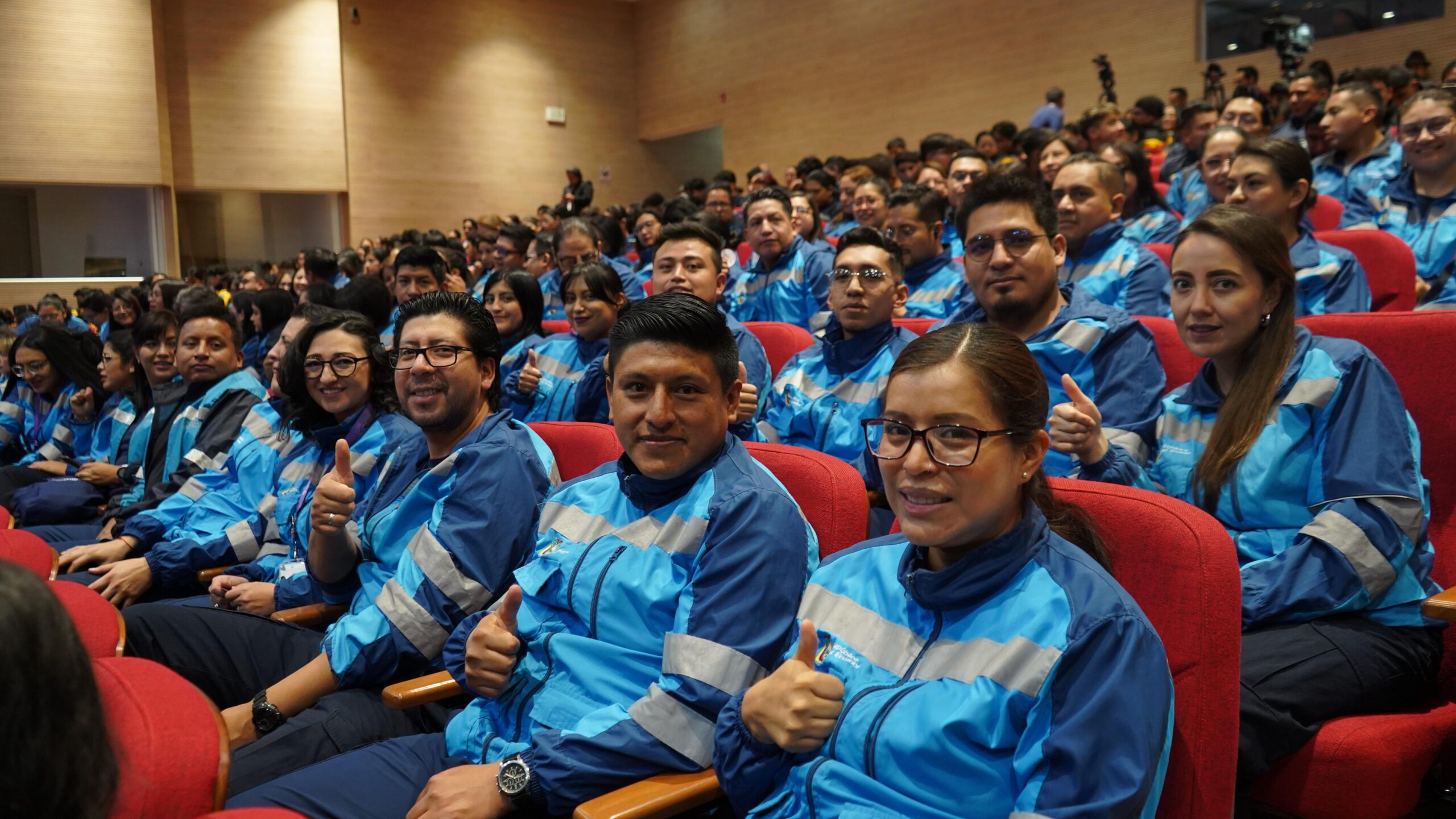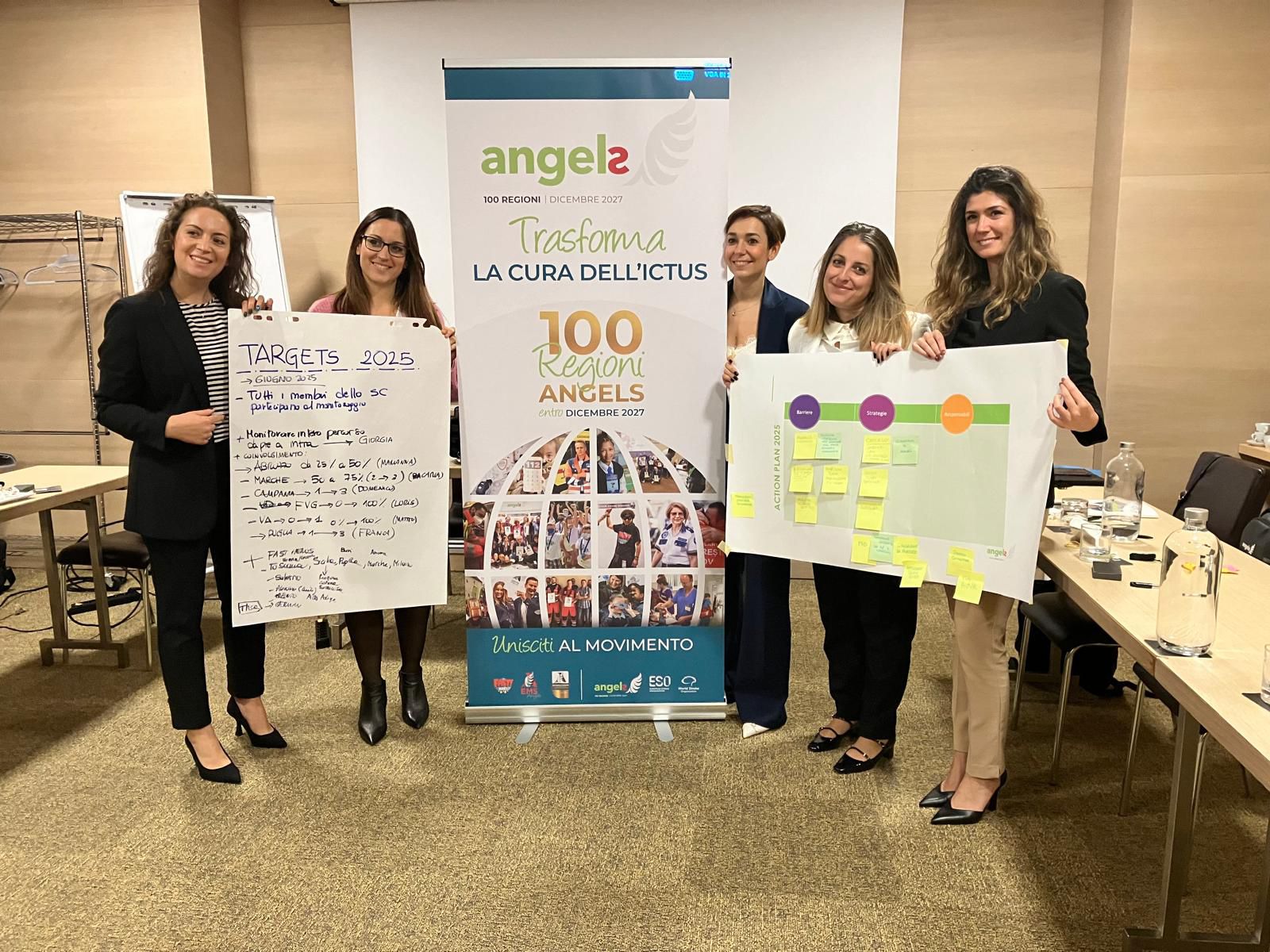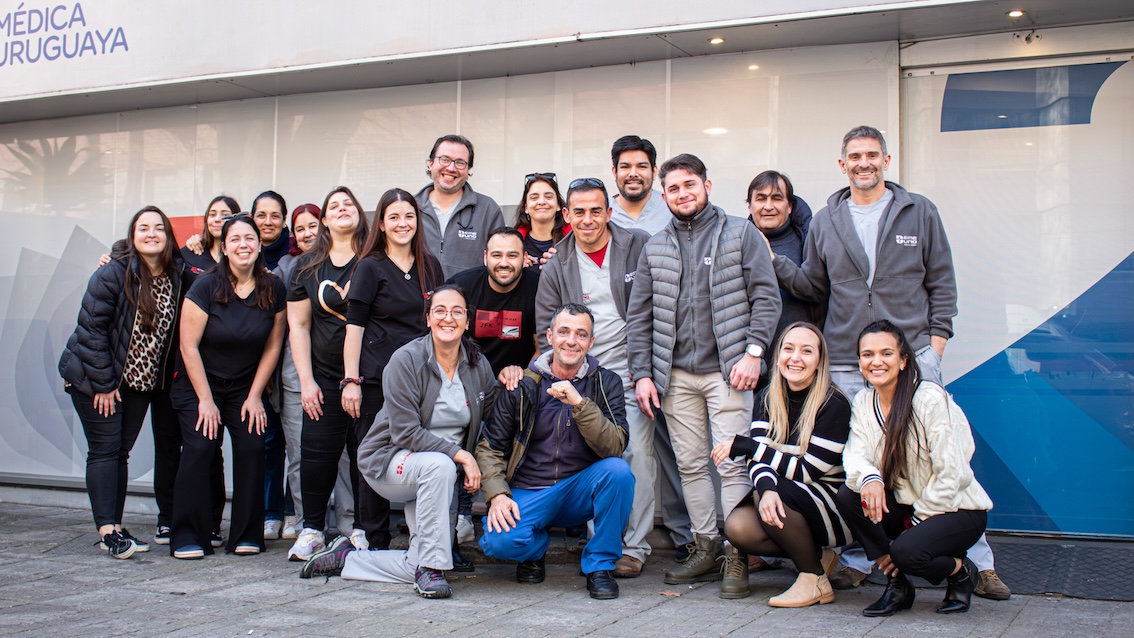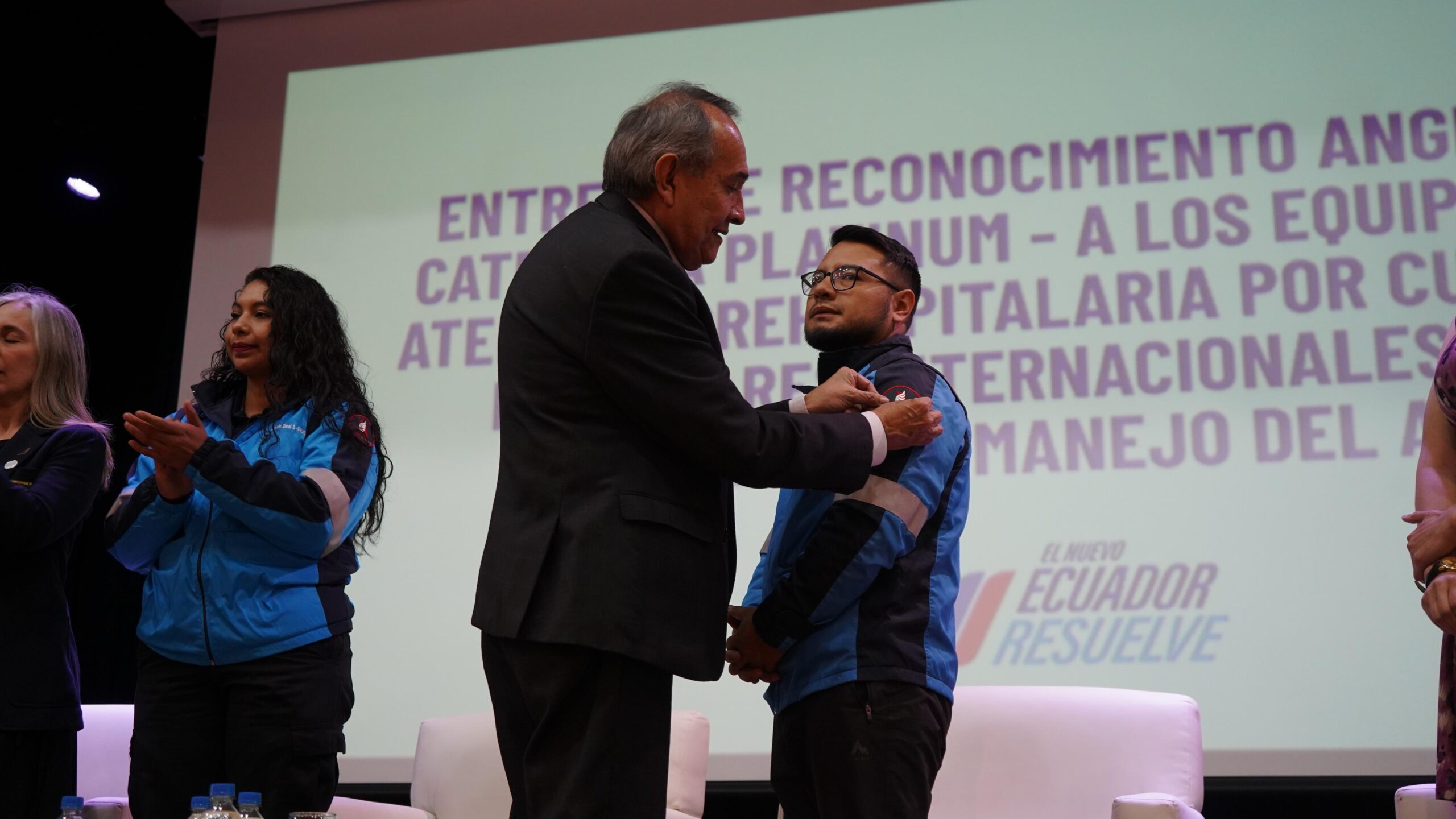
Na zdravotnících pracujících v přednemocničních koordinačních zónách 2 a 9 v provincii Pinchincha si můžete všimnout něčeho jiného. Jednou z nich je, že mají na sobě nezaměnitelný vzduch hrdosti. Druhým důvodem je, že drží hlavu tak vysoko – odznaky Angels na levém rukávu je vyzdvihují jako vítěze první ceny EMS Angels Award v Ekvádoru za vynikající výkon v přednemocniční péči o cévní mozkovou příhodu.
Prezentace těchto odznaků provoznímu personálu byla zlatým hřebem slavnostního předávání cen v Quitu, říká Dr. Verónica Pacheco, lékařka a specialistka v oblasti pohotovosti v Národním ředitelství mobilních zdravotních služeb ekvádorského ministerstva zdravotnictví.
„Toto uznání je velmi důležité, protože práce prováděná službami přednemocniční péče není obvykle uznávána.Tyto odznaky, které udělil ministr veřejného zdraví, Dr. Antonio Naranjo Paz y Miño, zvýšily pozitivní dopad. Byl to významný a emocionální okamžik, který bude motivovat ostatní týmy v zemi, aby usilovaly o toto ocenění.“
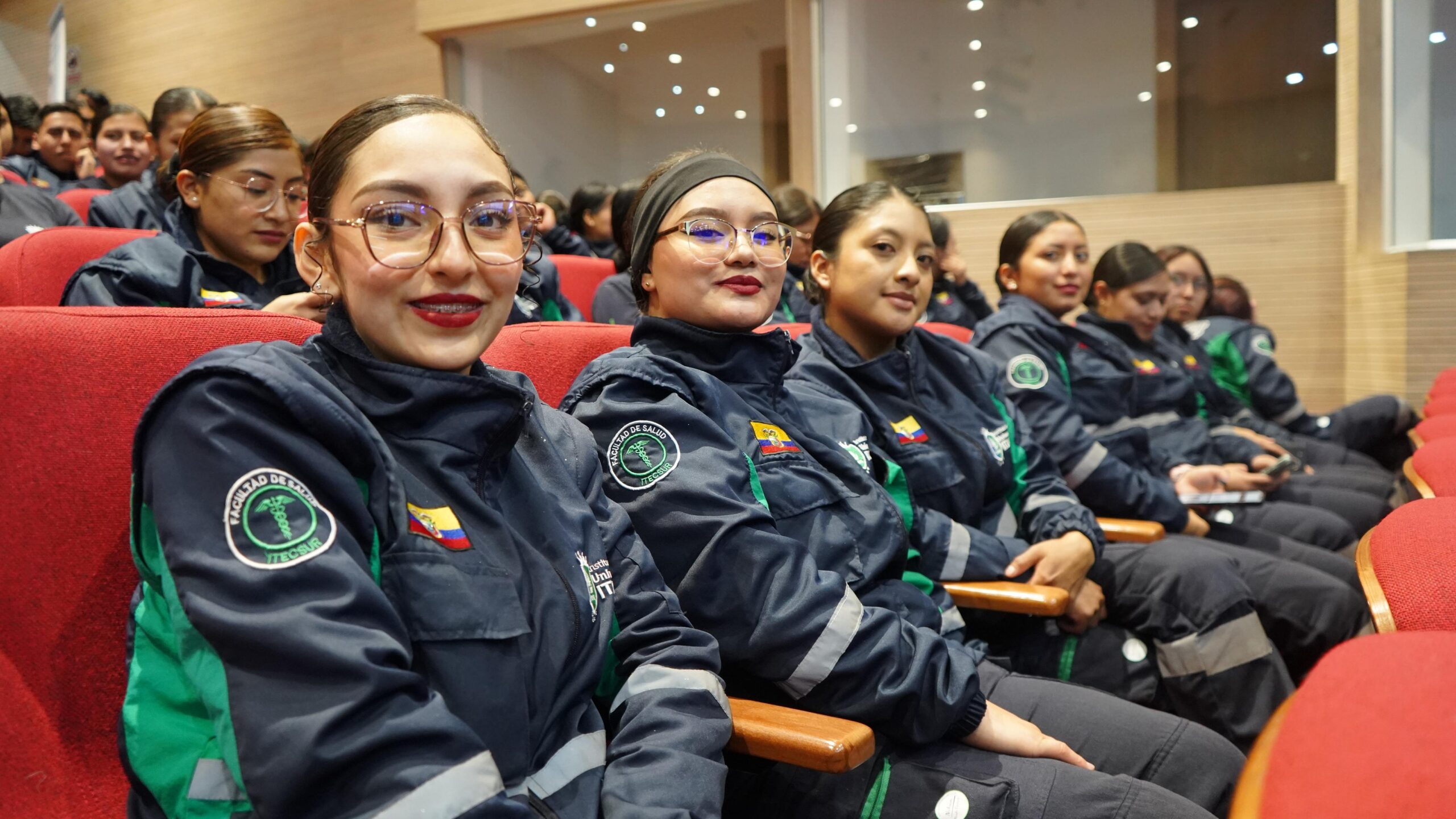
Dr. Pacheco nemá na tomto úspěchu žádnou malou roli. Vedla vývoj prvního národního protokolu pro přednemocniční péči o cévní mozkovou příhodu v Latinské Americe a formulovala pokyny, které jsou nyní implementovány v celé zemi.
Jako správce dohody mezi Iniciativou andělů a Ministerstvem zdravotnictví hraje Dr. Pacheco klíčovou roli při zajišťování školení zdravotnických pracovníků v řádném zvládání cévní mozkové příhody, včetně simulací prováděných ve veřejných nemocnicích. Výsledkem těchto snah je rozšíření pokrytí přednemocničních cévních mozkových příhod a sítě akreditovaných center pro cévní mozkové příhody, přičemž nemocnice v Tena, Macas a Latacunga mají brzy certifikaci společně s General Hospital Enrique Garcés v Quito.
Dr. Pacheco říká, že na dlouhé vzdálenosti oddělující města a malá města od nemocnic připravených na cévní mozkovou příhodu klade velké nároky na pohotovostní zdravotnické dopravní služby, takže výměna sanitek je prioritou. V současné době je do strategických lokalit doručováno 158 moderních sanitek na podporu života, aby bylo zajištěno dostatečné pokrytí pacientů, kteří potřebují urgentní péči, včetně cévní mozkové příhody.
Vytvoření protokolu pro přednemocniční péči o cévní mozkovou příhodu a jeho zavedení ve veřejném i soukromém sektoru bylo zásadním prvním krokem. Protokol byl formován procesem schůzek s provozním personálem a konzultací s lékaři pohotovosti, říká Dr. Pacheco. Jedním z jejich cílů byla standardizace použití škál při hodnocení přednemocničním; nakonec se rozhodli pro tři škály, které jsou přizpůsobitelné současné realitě zdravotního systému.
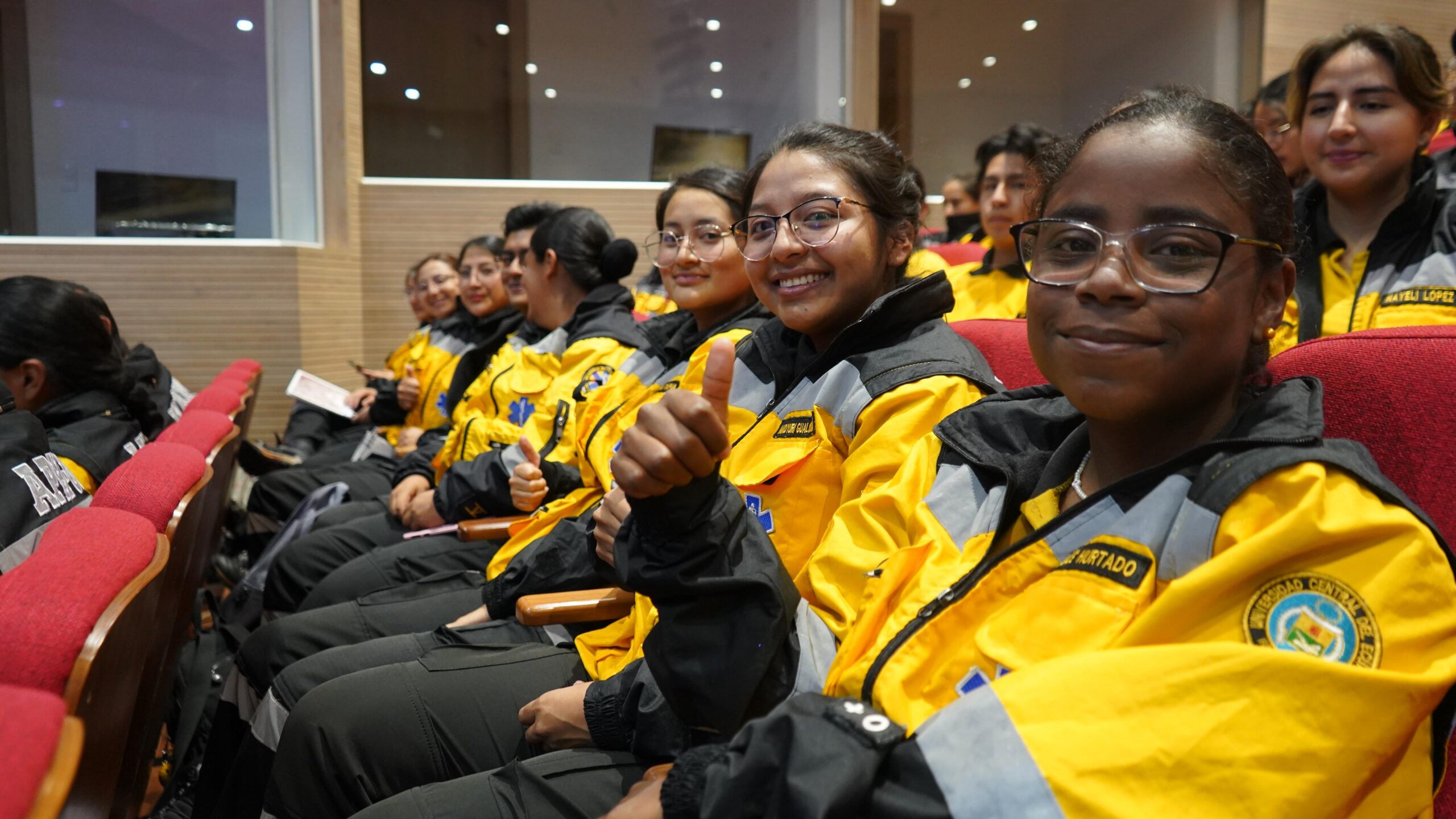
Další prioritou je osobní školení, často prováděné lékaři, kteří se podíleli na sepsání pokynů. Dopad tohoto osobního přístupu ke školení je podobný jako dopad vítězných ocenění, tvrdí Dr. Pacheco. V obou případech podporuje pracovníky sanitky tím, že jim vštěpuje pocit sounáležitosti a uvědomuje si, že jsou velmi důležitou součástí každého týmu pro péči o cévní mozkovou příhodu.
Týmy přednemocniční péče v zóně 2 a zóně 9 zahájily svou cestu za oceněním v květnu 2024. V červnu hodnocení jejich údajů ukázalo, že ve dvou oblastech, na které se vztahují kritéria ocenění, nedosáhli této hodnoty. Dr. Pacheco vysvětluje: „Protože v Ekvádoru vyžadujeme přijetí od nemocnice předtím, než může být pacient převezen do nemocnice, naše časy na scéně překročily ty, které jsou uvedeny v parametrech kvality. Náš personál přednemocnice také nezaznamenával léky pro pacienty, informace, které jsou zásadní pro rozhodnutí léčit cévní mozkovou příhodu.“
Mezi opatřeními k řešení těchto nedostatků byla implementace Código Rojo (červený kód), která eliminuje potřebu předchozího přijetí ze strany nemocnic u pacientů s cévní mozkovou příhodou. Místo toho jsou nemocnice předem upozorněny, že je na cestě pacient s cévní mozkovou příhodou.
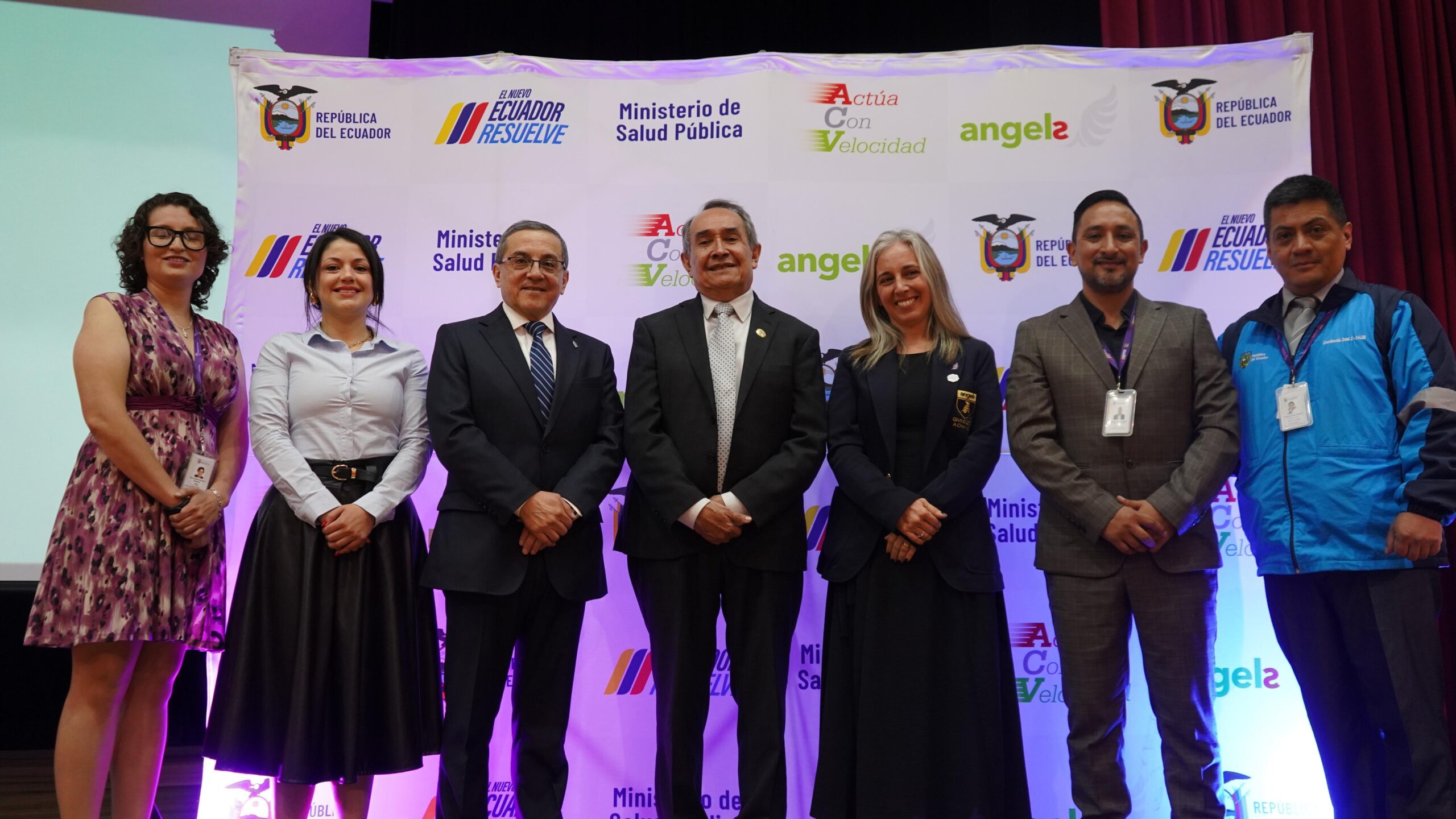
Zlepšování standardu přednemocniční péče završuje kruh kvalitní péče o pacienty s cévní mozkovou příhodou, říká Dr. Pacheco. „Je důležité, aby týmy nemocnic a sanitek měly dobré vztahy, mluvily stejným jazykem a spolupracovaly na optimalizaci času a zachraňovaly co nejvíce životů v naší zemi.“
Léčivo běží v její rodině. Její otec a dva bratři jsou také lékaři a jejich maminka je zdravotní sestra, takže impulzní snaha pomáhat lidem je součástí její DNA. Ale zachraňovalo to životy, které dr. Pacheco přivedly k urgentní medicíně, říká.
„Je mým nadšením být tady v okamžiku, kdy mě lidé potřebují, v okamžiku, kdy někdo přijde, potřebuje neodkladnou péči a má příležitost poskytnout pomoc a zachránit život. Především být tam v tom okamžiku, kdy je to tak obtížné pro všechny lidi, a poskytovat jim klidnou péči.“
Miluje urgentní medicínu, říká Dr. Pacheco. „Na nic bych své specializace nezměnila. Byl to velmi důležitý faktor v mém životě. Umožnilo mi to být v mnoha obtížných chvílích pro určité lidi, zachraňovat životy a dávat někomu zpět rodinu nebo kvalitu života. To bylo v mém životě zásadní.“
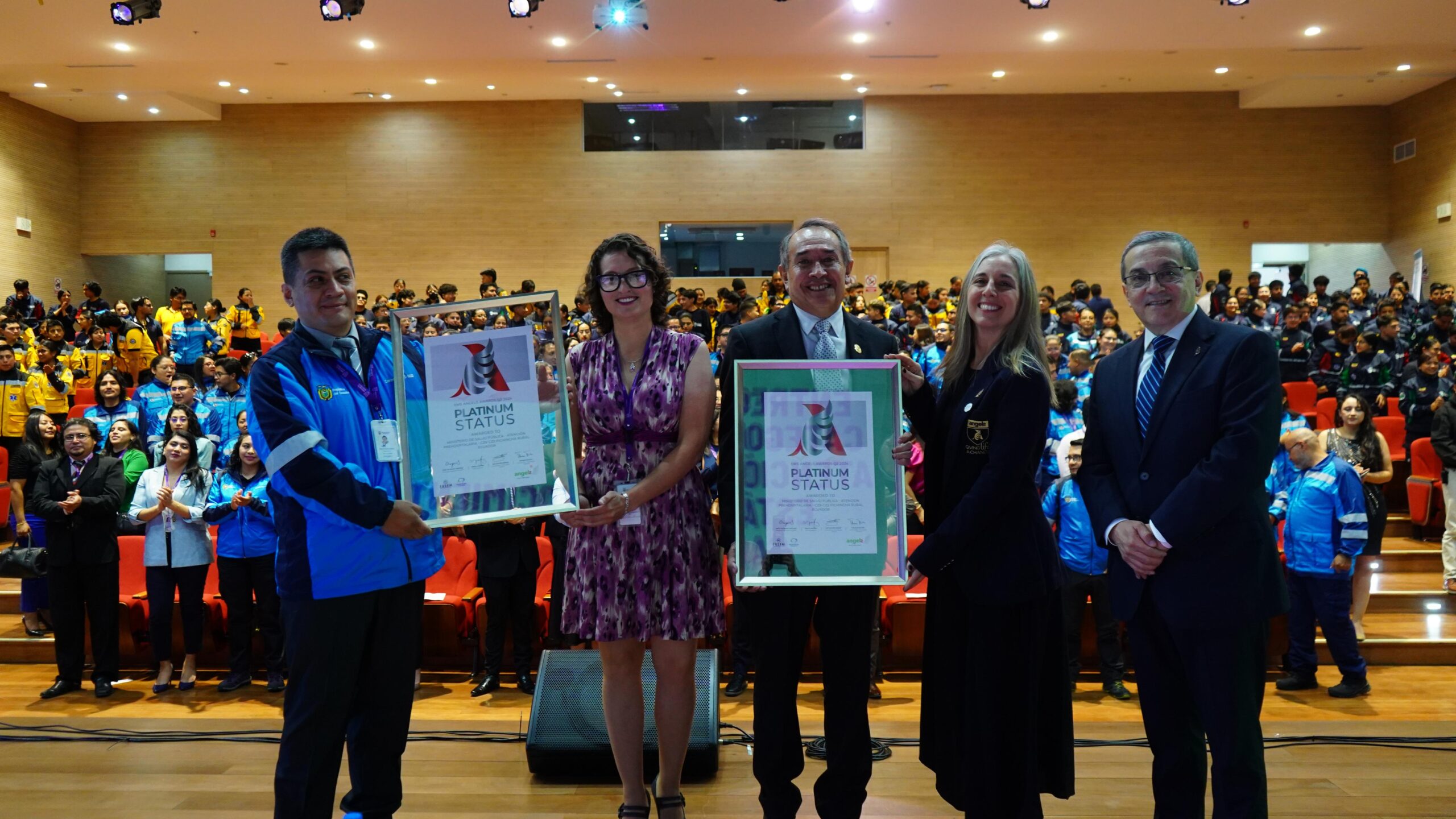
Kvalitní péče o cévní mozkovou příhodu také zachraňuje životy a zavedení protokolu pro cévní mozkovou příhodu v rámci sektoru přednemocniční péče dává Dr. Pacheco a jejímu týmu obrovskou platformu pro to, aby dělala to, co má ráda. Pinchincha je jen výchozím bodem, říká. „V této oblasti jsme začali pracovat, protože zde se nachází hlavní město a největší koncentrace lidí, kteří potřebují péči. Věděli jsme, že pokud bychom tuto cenu získali, mohli bychom využít toho, co jsme se naučili, k vývoji strategií pro menší týmy přednemocnictva nebo pro ty, kteří pracují v méně hustě obydlených oblastech. Víme, že musíme přizpůsobit a upravit náš přístup, abychom uspěli ve všech regionech nebo provinciích v Ekvádoru, a toho dosahujeme.
„Myslím, že během několika měsíců bude na pódiu další přednemocniční tým, který bude oceněn za kvalitu své péče o cévní mozkovou příhodu.“
Budete je moci rozeznat za bílé křídlo na levém rukávu.
